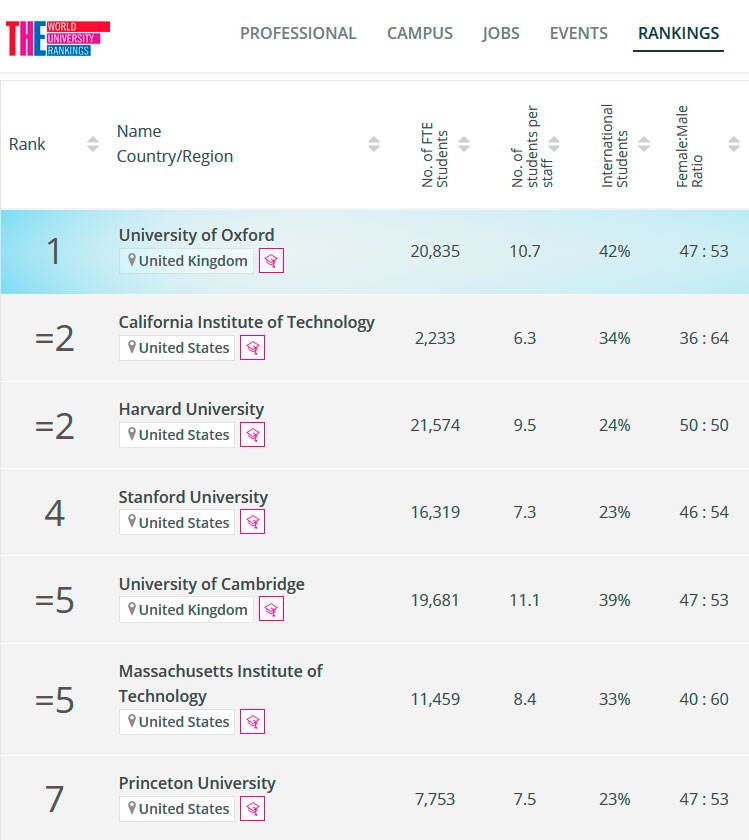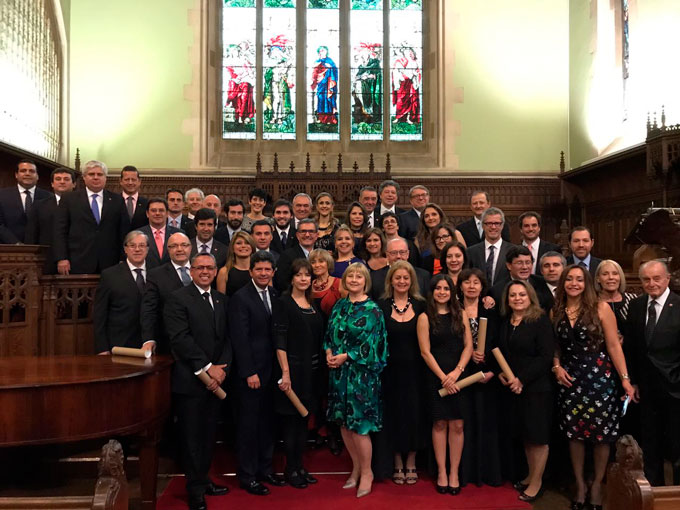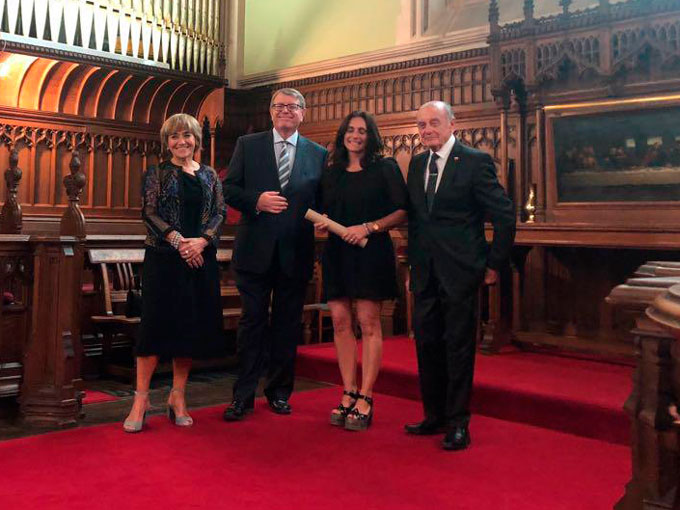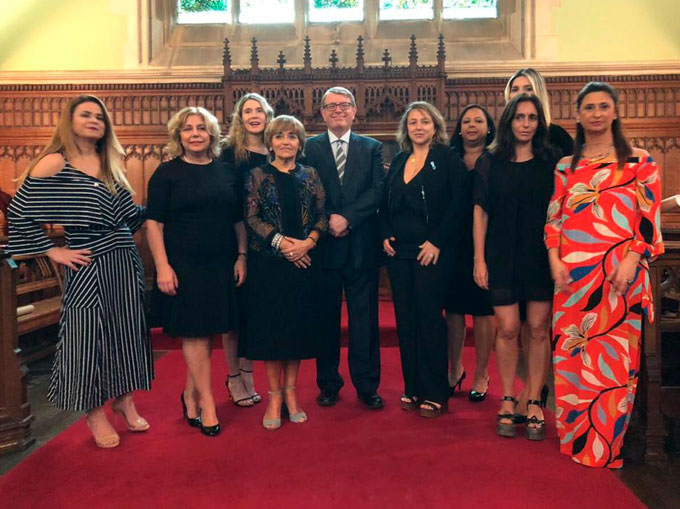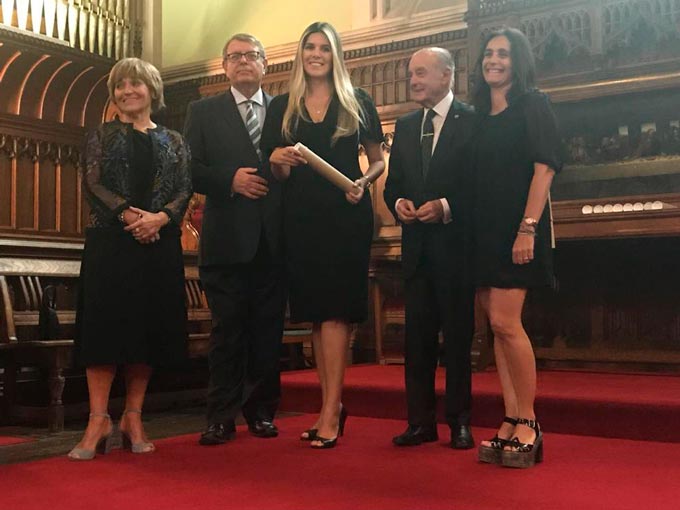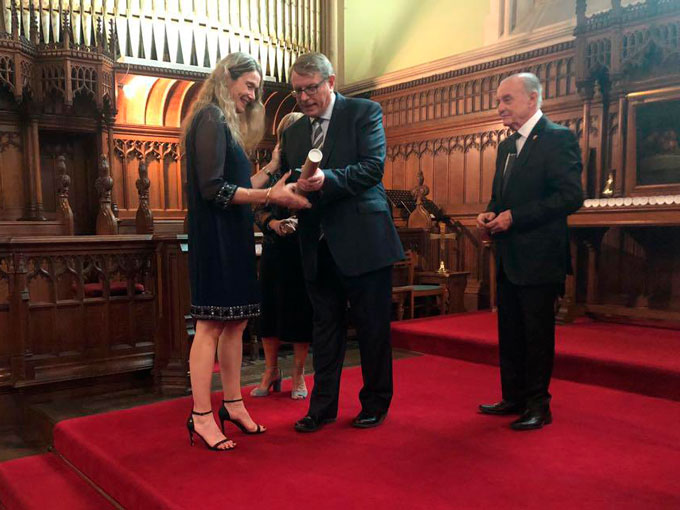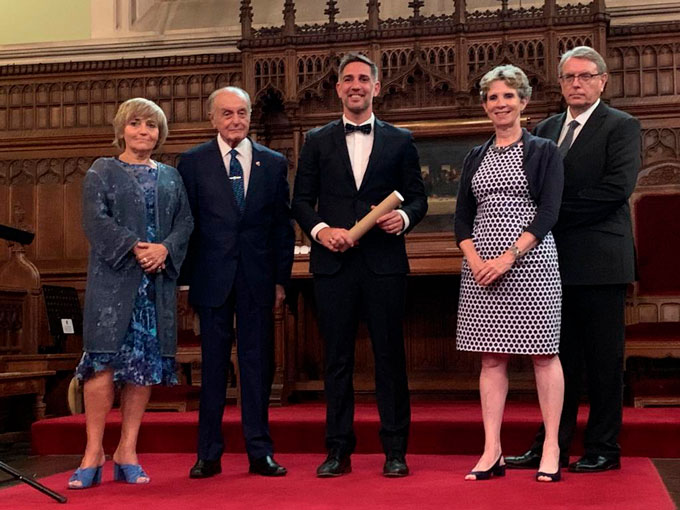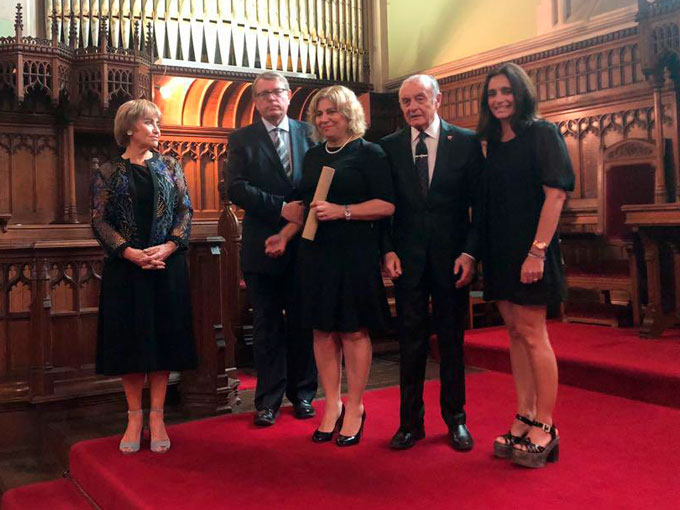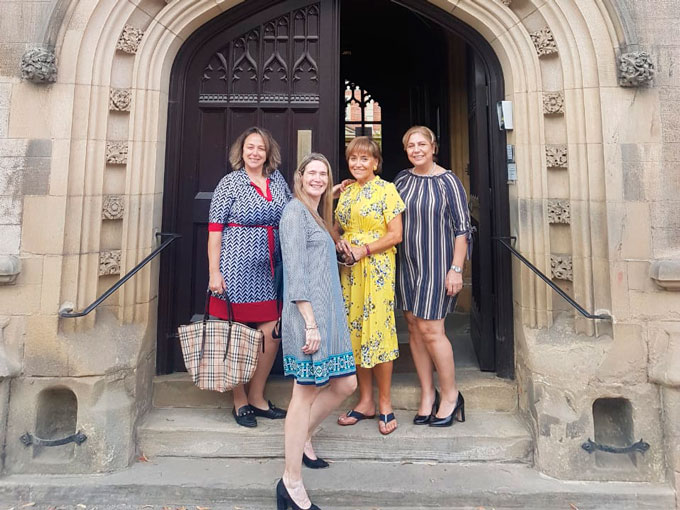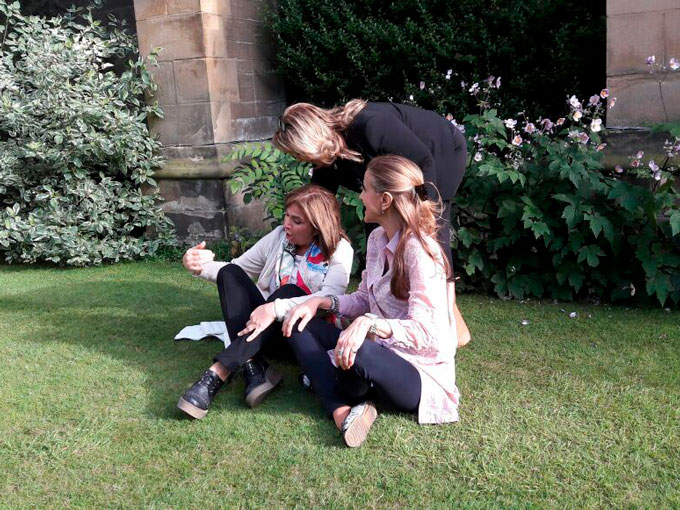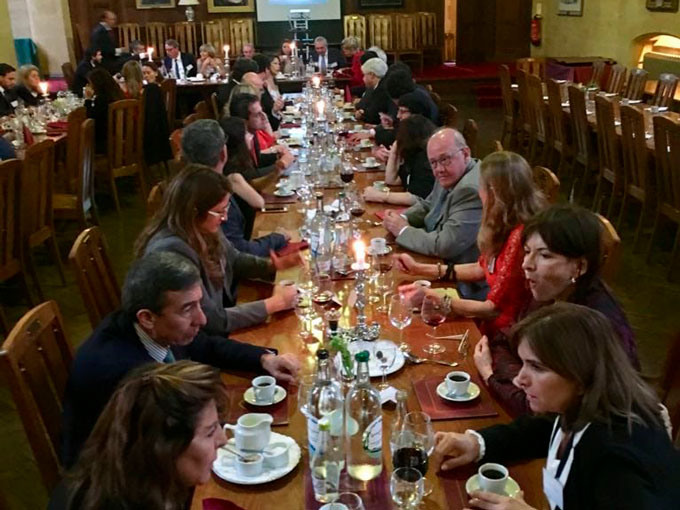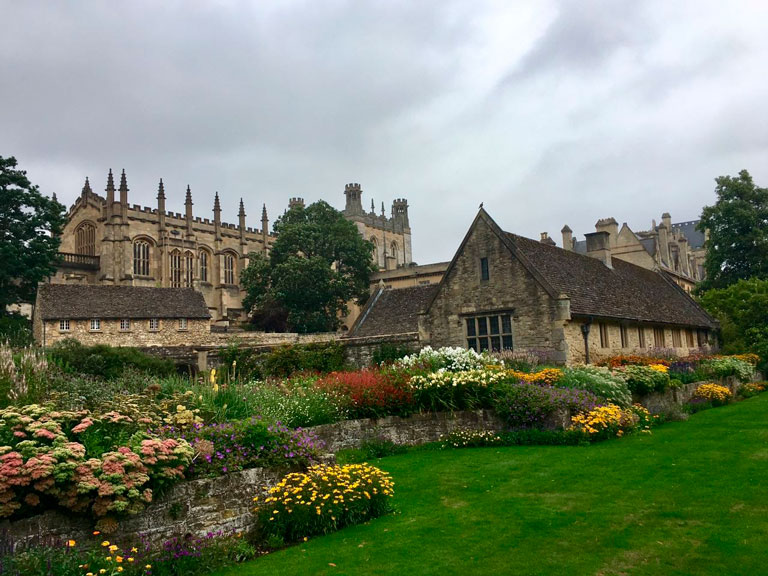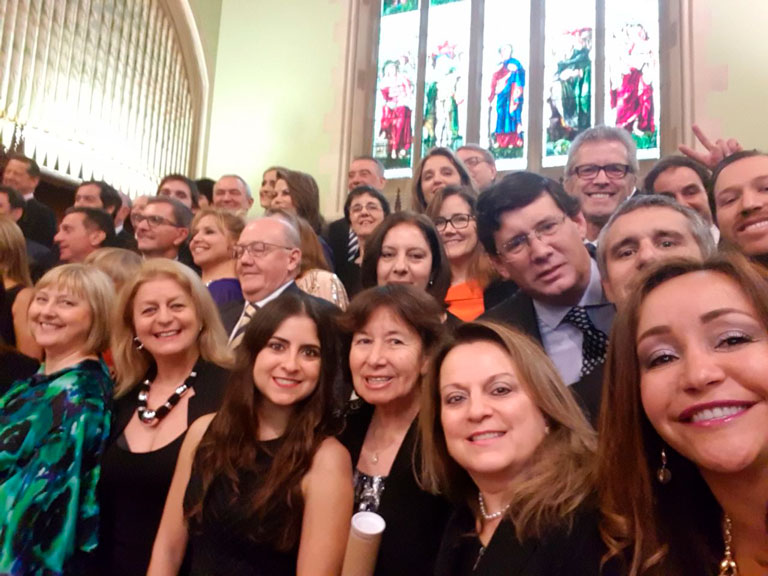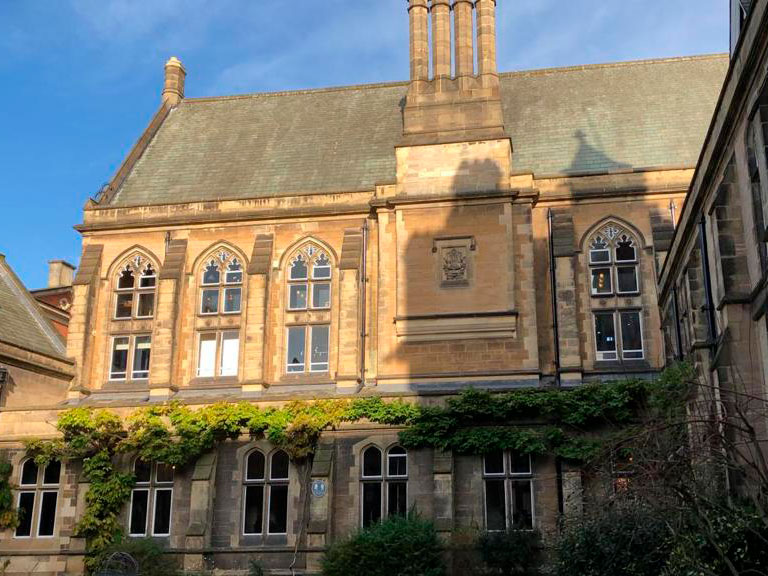VII Seminario para Líderes Latinoamericanos de Salud en el Reino Unido
HANDLING INNOVATION LEARNINGS INSPIRED BY COVID 19 IN ENGLAND AND LATIN AMERICA
July 20 to 24, 2022 | Harris Manchester College, University of Oxford | United Kingdom
Academic Course Director: Prof. Bernard Crump FRCP(UK) FFPHM MB ChB
Directors: Prof. María Adela Contreras / Enrique Mario Schiavon MD, MHA
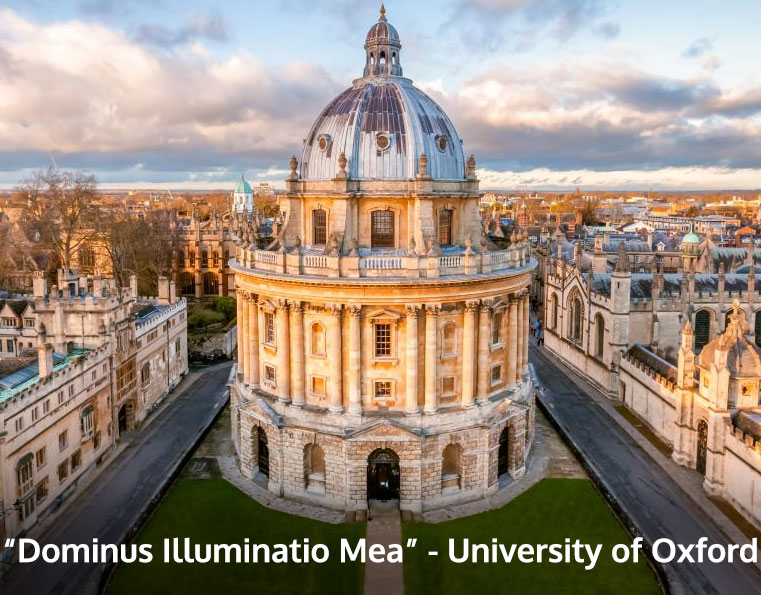
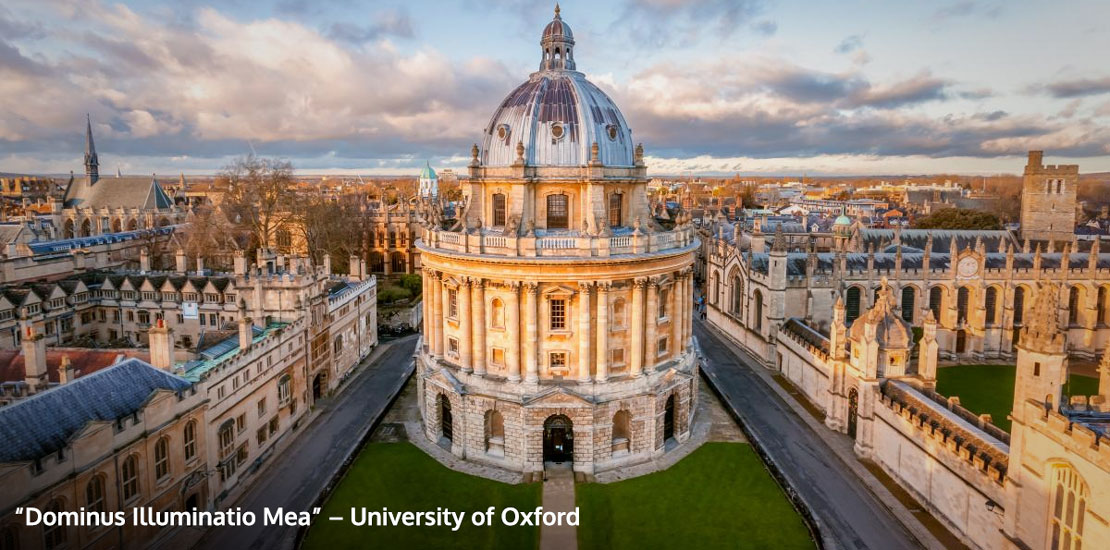
The University of Oxford is the oldest university in the English-speaking world and the world’s second oldest surviving university. While its exact founding date is unknown, there is evidence that teaching took place as far back as 1096.
Located in and around Oxford’s medieval city centre, the university comprises 44 colleges and halls, and over 100 libraries, making it the largest library system in the UK.
Students number around 22,000 in total, just over half of whom are undergraduates while over 40 per cent are international, representing 140 countries between them.
Called the "city of dreaming spires" by Victorian poet, Matthew Arnold, Oxford has the youngest population of any city in England and Wales: nearly a quarter of its residents are university students, which gives Oxford a noticeable buzz.
Oxford has an alumni network of over 250,000 individuals, including more than 120 Olympic medalists, 26 Nobel Prize winners, seven poets laureate, and over 30 modern world leaders (Bill Clinton, Aung San Suu Kyi, Indira Gandhi and 26 UK Prime Ministers, among them).
The university is associated with 11 winners of the Nobel Prize in chemistry, five in physics and 16 in medicine. Notable Oxford thinkers and scientists include Tim Berners-Lee, Stephen Hawking and Richard Dawkins. The actor Hugh Grant also went to Oxford, as did the writers Oscar Wilde, Graham Greene, Vikram Seth and Philip Pullman.
Oxford’s first international student, named Emo of Friesland, was enrolled in 1190, while the modern day university prides itself on having an ‘international character’ with connections to almost every country in the world and 40% of its faculty drawn from overseas.
As a modern, research-driven university, Oxford has numerous strengths but cites prowess in the sciences, having recently ranked number one in the world for medicine (Click to see ranking) (if its medical sciences division was a university in its own right, it would be the fourth largest in the UK) and among the top ten universities globally for life sciences, physical sciences, social sciences, and the arts and humanities.
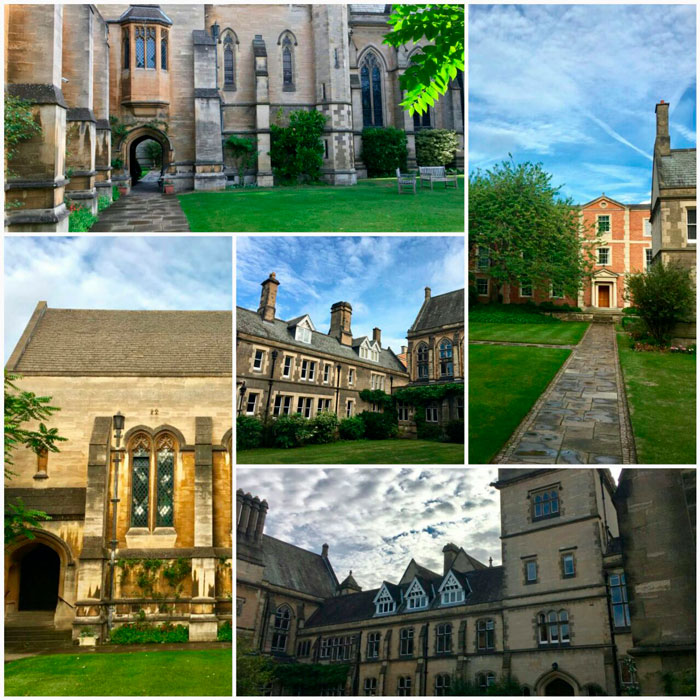
Introduction to 2022 Programme
The experience of the last two years has been extraordinary for every health and care system across the world and the English experience is no exception. We have seen major loss of life, directly from Covid and for people who could not access care for other conditions. Tragically, many people reached the end of their life without the support of loved ones as they had to be treated in isolation. Some groups within our population were disproportionately affected. We learned hard lessons about the importance of social care. Many health and care staff were themselves ill or died. The impact on our workforce has been, and continues to be, profound. And the long-term effects of surviving Covid are still not fully clear. There is a great deal to sadden us about this period.
However, we also saw a remarkable response from our services. A range of extraordinary innovations were introduced, at unparalleled pace and scale. Collaboration between parts of the service, with other industrial sectors such as engineering, with academia and across countries occurred at an unprecedented level. The UK played a leading role in vaccine development, and in innovations to identify variants of the virus and to track and model the epidemic. Health service delivery has changed profoundly, and we now have to evaluate how many of these changes should become part of our future.
As the numbers of new cases reduces, and the day-to-day impact on our wards and ICUs from Covid itself diminishes, the service is deeply engaged in addressing how to deal with the backlog of demand which was pent up during the pandemic and the cost of these backlog demand. And this is happening as the service in England undergoes a major shift in philosophy. For thirty years, competition in an “internal market” has been the orthodox policy for the improvement of quality and efficiency of services. From July 2022 new reforms are being enacted in which collaboration between stakeholders will replace competition as the dominant philosophy.
During this programme, we will discuss these issues, with input from people who have been involved from all parts of the health and care sector. As always there will be an opportunity for participants to present innovation inspired by Covid in their own countries in the "Poster Sessions and Round Table". We hope and intend that this workshop will give space and inspiration for you to reflect on the implications of the last two years for your own work and your own services, as the world takes its tentative steps towards reopening its doors.
Outline Programme
We are proposing that we devote Thursday and Friday to learnings from the pandemic and implications for the future. Innovations are welcome to reduce costs and improve quality. We would do this by having sessions on the themes outlined namely:
- Physical capacity: beds, including Intensive Care beds and overall capacity to treat an influx of patients and
Material capacity: Handling shortages of Personal Protective Equipment, Ventilators and other key equipment and supplies - Human capacity: what steps were taken to address staff shortages and what are the implications for the future (input from Andrew Foster, former Director General of HR for NHS England and former hospital CEO who led the NHS response to securing additional staff during the pandemic)
- Lack of knowledge and evidence: Steps taken to establish knowledge hubs and to fast-track trials to guide treatment and population management choices
- The mental health burden: The mental health and wellness impact of the pandemic for patients, staff and the population at large and how this was responded to
- Safe consultations: The role of digital health to support virtual consultations and other means to care for people safely
- Long Term prevention: The emergence of vaccination, implications for medicine's approval and partnership between healthcare and pharma and between countries.
- "Long Covid": What do we know about people who were infected and long-term effects and how these should be managed?
- System recovery: As the immediate impact of the pandemic appears to have diminished how does the system recover and handle the backlog and costs of untreated patients?
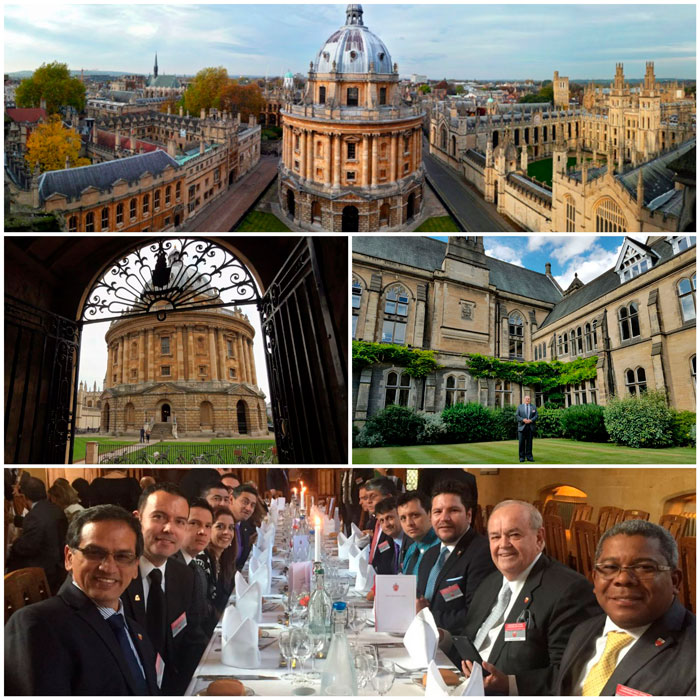
Go to the Contact Page or Continue Reading
Course Calendar
|
WEDNESDAY 20th JULY Arrive Oxford |
|
| 1100 / 1300: | Check in at Harris Manchester College, University of Oxford, UK. |
| 1330 / 1500: | Walking Tour of Oxford / Participants, Wives, Spouses and others. |
| 1600: |
Welcome to the Program. Profs. María Adela and Bernard Crump, Drs. Sidney Klajner (President Hospital Albert Einstein, SP, Brazil) and Enrique Schiavon |
| 1800: | Welcome Drink and Tour of the College. |
| 1900: | Opening Dinner. |
|
Everyday Breakfast, Buffet Lunch and Dinner are served at the Arlosh Hall. Harris Manchester College. |
|
| THURSDAY 21st JULY | |
| 0900 / 1530: |
Inputs on Innovation during Covid times and implications for the future The pandemic had a major and immediate impact on our services, both in terms of the response to the needs of patients infected, and in terms of the delivery of care for people who did not have Covid-19, but needed to access services for other conditions, but struggled to do so because of the burden of patients with Covid, the need to minimize infection in care settings, and the large loss of staff to illness and self-isolation. We will look at these challenges, and how our systems responded. We will also discuss the future implications of these issues, positive and negative, and the ways that innovation might be deployed to improve our services in the post-pandemic era. We will organize our discussions around the following themes, and for some of these will be joined by guest expert speakers who will share their experience and their views. Prof Bernard Crump will summarize the response to these issues for the NHS in England and Dr Sidney Klajner will offer a Latin-American perspective, drawing on his leadership of the Albert Einstein hospital during the pandemic. They will each outline the overall shape of the pandemic in their countries to provide context in an initial presentation “Covid-19 in numbers: the experience in England and Brazil” Participants of Latin American will shared their own experiences during each session. |
| 0900 / 1030: |
An Overview of the Pandemic in the UK and Latin America, Brazil as leader case. Prof. Bernard Crump and Dr. Sidney Klajner |
| 1030 / 1100: |
Coffee. |
| 1100 / 1230: |
Managing Services: Physical and Material Challenges. Prof. Meghana Pandit CMO Oxford University Hospital NHS Trust Commentary: Dr. Sidney Klajner Hospital Israelita Albert Einstein and Perspectives of All Participants |
| 1230 / 1400: |
Buffet Lunch at Arlosh Hall. (HMS Dining Hall) |
| 1400 / 1530: |
The Mental Health Impact and “Long Covid”. Prof. Bernard Crump Perspectives of All Participants |
| 1530 / 1600: |
Five O’clock Tea. |
| 1600 / 1730: |
Latin American Round Table Part 1. Poster presentations from participants. |
| 1900: |
Three Course Dinner at Arlosh Hall. (HMS) |
| 1930: |
Cultural Optative Activity “Oxford by Night” Guide Tour. |
| FRIDAY 22nd JULY | |
| 0900 / 1030: |
The Challenge of Staffing and Human Capacity. Andrew Foster Former DG of Workforce at DOM Commentary: Dr. Sidney Klajner “The Brazil Context” Perspectives of All Participants |
| 1030 / 1100: |
Coffee. |
| 1100 / 1230: |
Virtual and Remote Working Profs. Veronica Wilkie and Bernard Crump Commentary: Dr. Sidney Klajner “The Brazil Context”. Perspectives of All Participants. |
| 1230 / 1400: |
Buffet Lunch at Arlosh Hall. |
| 1400 / 1445: |
The Emergence of Vaccines How does Oxford develops the Astrazeneca Vaccine and Lessons for the Future. Videoconference from the Leader of the Vaccine Oxford Team and Group Discussion. |
| 1445 / 1530: |
System Recovery. Profs. Bernard Crump and Sidney Klajner Perspectives of All Participants. |
| 1530 / 1600: |
Five O’clock Tea. |
| 1600 / 1730: |
Latin American Round Table Part 2. Poster presentations from participants. |
| 1900: |
Free Dinner Outside the College. |
| SATURDAY 23rd JULY | |
| 0900 / 1230: |
The 2020 Reform Agenda in the English National Health Service Profs. Bernard Crump, Veronica Wilkie and David Sissling (Chair Leicester, Leicester and Rutland Integrated Care Board) As the NHS has changed from his creation in 1947, it ‘ll beat challenges to integrate health services, social services and community work in 2023. David will be a regional leader in this journey. |
| 1030 / 1100: |
Coffee. |
| 1130 / 1230: |
The new system for England Part 2. (Chair of LLR Integrated Care Board David Sissling) |
| 1230 / 1400: |
Buffet Lunch at Arlosh Hall. |
| 1400 / 1500: |
A Perspective on the Future of Healthcare from Latin America. Dr. Sidney Klajner |
| 1530 / 1700: |
Latin American Roundtable Final Presentations. |
| 1830: |
Overview of Course Learnings. Prof. Bernard Crump Certificates presentations and closing in the Chapel. |
| 1930: |
Formal Final Dinner at Arlosh Hall. Toast for the 25 Anniversary of Liderlatam. Prof. Maria Adela Contreras and Drs. Enrique Mario Schiavon and Manuel Villarreal |
| SUNDAY 24th JULY | |
| 0800 / 1030: |
Breakfast and Farewell Exercise. (Participants who have agreed to the optional activities will stay at Oxford from 10.30 am to 3 pm) |
![]() DESCARGAR PROGRAMA (Spanish) ACCESS THE ADMISSION FORM
DESCARGAR PROGRAMA (Spanish) ACCESS THE ADMISSION FORM

